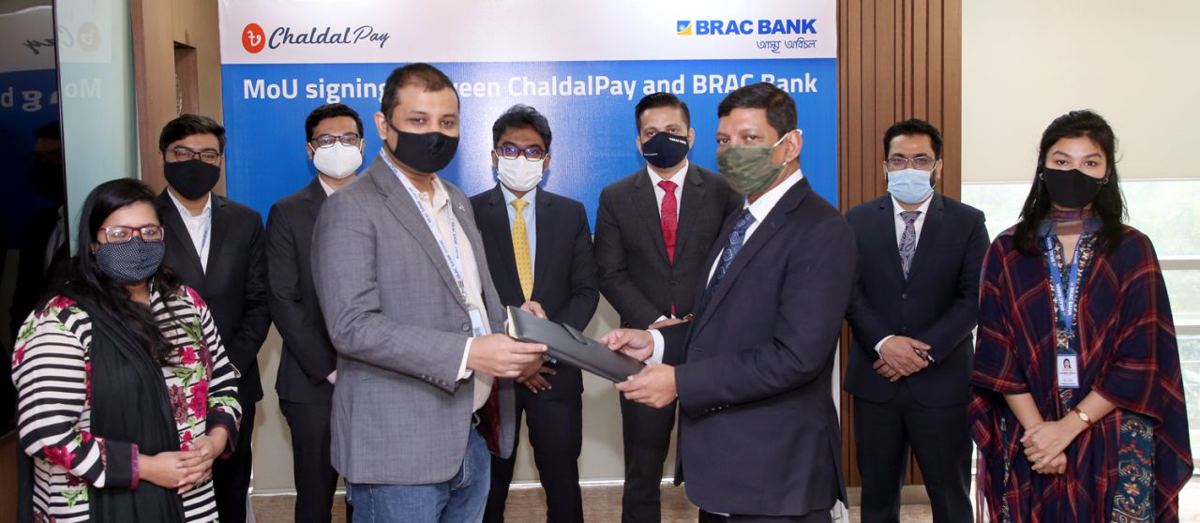
Chaldal, the Dhaka-based grocery startup, has been working to get into digital payment. The company has created a separate entity called Chaldal Payments Limited and signed an agreement with BRAC Bank. Announcing the agreement BRAC Bank wrote in a LinkedIn post, “ChaldalPay will use the settlement services of BRAC Bank to facilitate transactions for its upcoming ChaldalPay e-wallet under the Payment Services Provider (PSP) license. This partnership will help customers of both organizations to enjoy smooth, reliable, and secure transactions conveniently.”
On Chaldal’s part, digital payment is a predictable extension and a critical one to that.
Payment is a critical part of the customer experience for companies like Chaldal. An e-wallet of its own means Chaldal will be able to better deal with refunds, offering discounts, and other benefits to customers. It also offers a competitive moat to the company allowing deeper integration across different parts of its operation, a new interaction point for customers thus new customer acquisition opportunities, and creating one more reason for customers to stick with Chaldal.
Over the past years, Chaldal has made a number of diversification efforts within grocery and food. It has not only built a successful online grocery business but also built an end-to-end grocery supply chain creating a direct backward linkage with farmers as well as a forward linkage with smallholder retailers allowing it greater leverage in the grocery supply chain. Payment should help Chaldal better integrate its existing operation and reach out to a new customer base.
From How Chaldal works:
"Chaldal has built a suite of businesses that handle everything from working directly with farmers to working with smallholder retailers to micro-warehousing and logistics. The company has moved into some more unexpected areas, including working in the Rohingya refugee camp with WFP, making a strategic investment into home food delivery startup Cookups, and turning its marketplace tech into Chaldal Systems.
Over the years, Chaldal has expanded its platform beyond the marketplace and micro-warehouse model and embedded itself firmly into the grocery supply chain with initiatives like Chaldal Vegetable Network and logistics operations Go Go Bangla.
Broadly, you can divide Chaldal’s business into three components. One, the online marketplace that you know as the Chaldal website. Two, micro-warehouse that enables online marketplace business. Three, logistics enable Chaldal to deliver goods at the doorstep of customers.
On the marketplace end of the business, the most important part is demand generation. The more demand Chaldal generates, it can bargain well with the suppliers and exert greater power on the supply chain and shape it. To that end, Chaldal is an aggregator. Through its customer-facing online marketplace, it aggregates demands and that demand allows it to work better with suppliers.”
Digital payment helps Chaldal to establish a seamless connection across its operation and reach customers who are not currently a part of Chaldal’s ecosystem. Having a digital wallet means the company can now control a critical part of its customer experience. It also allows Chaldal to connect different parts of its business and customers such as making a connection between vegetable suppliers and small-holder retailers and Chaldal’s consumer business.
Grocery is a daily necessity. But that you can fulfill from many sources. A customer who shops on Chaldal can occasionally go shop from somewhere else as well. With an e-wallet, Chaldal effectively reduces the chance of that happening because a customer using ChaldalPay will have a far greater number of reasons to stay within the Chaldal ecosystem than otherwise.
Chaldal aims to establish a “transactional relationship with every business and customer in Bangladesh.” When you embed payment into the Chaldal ecosystem, everything gets better and Chaldal’s control over its trajectory improves meaningfully.
